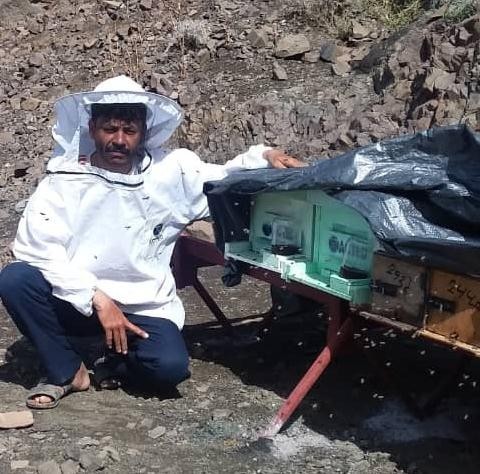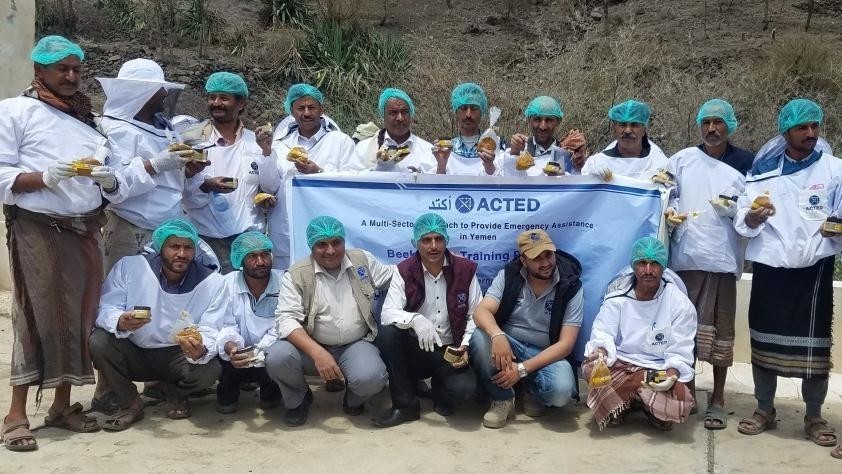The production of honey in Yemen has been a tradition since the 10th century and is an important way of life, especially in remote communities.
For the occasion of World Bee Day on 20th May, 2020, ACTED returned to interview beekeepers supported in 2019 through OFDA funding and observe the impact of the past intervention.
ACTED returns to beneficiaries of beekeeping activities to review their progress one year on from the intervention
ACTED’s project team met with Gamal, 39, a beekeeper in Al-Watha. He talked to ACTED about his life before the war and the impact ACTED’s intervention has had on him and the whole community of beekeepers.

“Before the war I was dependent on my salary as a civil worker, but it got cut off in 2016. After that I was inspired by the beekeepers around me to buy two bee colonies and try my luck with beekeeping. But with the traditional beekeeping methods taught to me by fellow bee keepers I faced difficulties such as my bees dying, but I could not understand why, which led to my colonies decreasing.
We were very happy when ACTED’s team arrived for the beekeepers training programme. A meeting was held for all beekeepers in the area and together we selected which of us would join the beneficiary committee.
Now, one year since receiving the bee colonies, I have about 7 kilos of honey, and the bee colonies increased to 14. We now produce Vaseline from the damaged wax which we previously would have thrown away; we learned how to benefit from bee products for treatment which saves us a lot of other medicine costs.
Frankly, ACTED has left a positive impression and I, the community in general, and particularly the beekeepers and beneficiaries, have been very satisfied with the assistance. The team were supportive and transparent.”

Background
In Ibb governorate, in the central highlands of Yemen, years of conflict has led to the collapse of the local economy and tens of thousands of people have lost their jobs or no longer generate the income they did before the war from their professional activity. With funding from OFDA, ACTED intervened throughout 2019 in the region of Ibb to work with professional beekeepers in strengthening their income generating activities to enable them to become self-dependent and support their households.
Due to the difficulties in accessing the remote location of Al-Watha, few humanitarian organization intervene to support the community in the village who rely mainly on agriculture and bee keeping for their income.
ACTED began working with 14 beekeepers in the village who were not able to generate anymore income from their activities due to lack of resources to procure animals and equipment. As a consequence, families were struggling to feed themselves and began to rely on small daily work in the fields of farmers to meet the most urgent needs of their children.
ACTED provided each participant with bee colonies and new toolkits. While the delivery of the toolkits was easy, the bee colonies have to be distributed overnight when the bees are asleep. Each of them is checked by ACTED’s bee specialist to confirm they are healthy before distribution.
Bee keepers then took part in trainings on the most recent beekeeping practices to ensure the efficiency of their activities.
ACTED continues to support bee keepers in various governorates in its current OFDA-funded project to encourage good competition in the markets and help increase the local production of Yemeni honey.